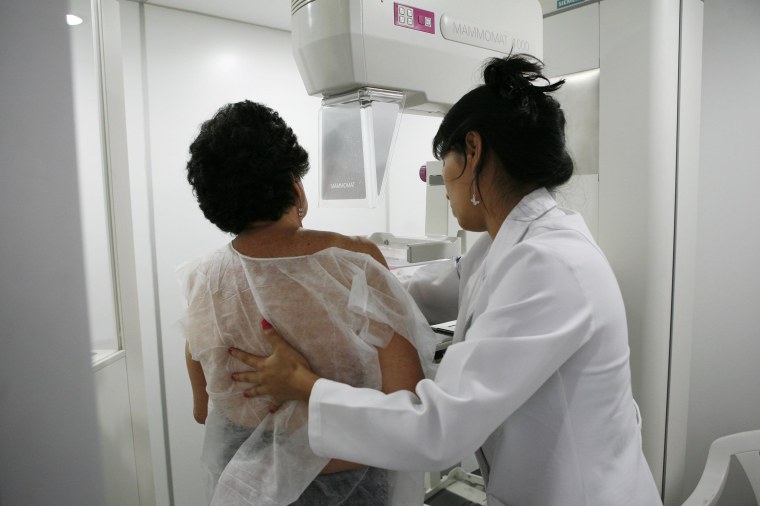A new study on breast cancer may leave women more confused than ever before.
It concerns ductal cancer in situ (DCIS) — a condition that many cancer experts argue shouldn’t even be called cancer. Sometimes it’s called breast cancer stage 0.
DCIS is a well-known risk factor for breast cancer, but doctors have disagreed on whether to treat it.
This new study adds some information — but very little clarity.
It finds that about 3 percent of women with DCIS eventually died of breast cancer. What's more (and even more confusing), these women seem to have died whether they were treated for the breast cancer or not.
“It is therefore appropriate to consider these as de facto breast cancers."
They studied the cases of more than 100,000 women with DCIS, following their records for 20 years. They only looked at medical records, so the researchers do not know many of the individual details of each case.
Over those 20 years, 517 women died of breast cancer. Black women and women who were 35 when the DCIS was diagnosed were more likely to eventually die of breast cancer, the researchers reported in the Journal of the American Medical Association’s JAMA Oncology.
Women diagnosed before the age of 35 had a 17 times greater than normal risk of dying from breast cancer, Dr. Steven Narod of Women’s College Hospital and the University of Toronto found.
A lot also depended on how big the tumor was and how aggressive it seemed. But confusingly, half the women who had the tumor and who had radiation — and who seemed to have been cured — died of breast cancer later. The breast cancer that came back and killed them may not have caused any symptoms until it was too late.
How could that be?
"Not all invasive cancers are lumps," said Dr. Deanna Attai, a breast surgeon at the University of California Los Angeles. "All it takes are a few cells to burrow their way through."
That suggests that DCIS really is breast cancer, at least in some cases, and not simply a precancerous lesion.
“It is therefore appropriate to consider these as de facto breast cancers and not as pre-invasive markers predictive of a subsequent invasive cancer,” Narod’s team wrote.
“At this time, the decision about whether or not to have surgery for DCIS has to be made by a woman and her doctors."
Dr. Peggy Porter, a breast cancer researcher at the Fred Hutchison cancer research center in Seattle, says the study doesn’t answer the most pressing question — which cases of DCIS are dangerous and which are not?
"As was stated by some in the article, even after extensive attempts to identify markers of progression in DCIS lesions, we still cannot definitively tell which DCIS will progress and which won’t,” Porter wrote in a statement.
Until that happens, some women with DCIS who were never at risk of breast cancer will opt for surgery and treatment and others will opt not to be treated and may develop breast cancer.
“At this time, the decision about whether or not to have surgery for DCIS has to be made by a woman and her doctors considering all known risk factors, the type of DCIS and personal preferences concerning future screening,” Porter said.
Attai said women should not panic and ask for radical treatment if they get a DCIS diagnosis.
"We know from 30 years of followup … that more surgery is not better," she said.
"That goes for DCIS as well as for invasive cancer. The survival from a radical mastectomy is no better than survival from a lumpectomy (which just removed the tumor and surrounding tissue)," she added.
Women can try modifying their lifestyle -- exercising, eating more healthy food and cutting back on alcoholic drinks, all of which can lower breast cancer risk, Attai said.
"But the reality is with cancer and many diseases we don’t have as much control as we wish we did," she said.

